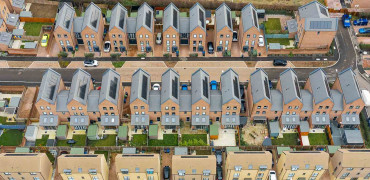The 2024 Autumn Budget has introduced major reforms affecting social housing and affordable housebuilding across the UK, aiming to address persistent shortages and improve housing affordability for low-income families. Housing Association Magazine’s Joe Bradbury discusses:
This year’s budget allocates over £3 billion towards constructing new affordable homes, aligning with Labour’s target of building 1.5 million new homes by the end of the parliamentary term.
These funds are directed at both large-scale developers and smaller builders, an approach intended to deter land hoarding and hasten project timelines that have historically stalled the availability of affordable homes.
By supporting a wide range of developers, the government intends to reduce some of the barriers that have prevented quick starts on crucial housing projects.
Critics argue that the Budget takes steps to support social housing but fails to offer sufficient measures for private renters
Right to Buy
A major change within this budget is the adjustment to Right to Buy discounts.
Right to Buy has historically allowed tenants in social housing to purchase their homes at discounted rates, leading to a significant transfer of public housing into private ownership since the policy’s introduction in the 1980s.
Critics argue that while Right to Buy enabled homeownership for many families, it also depleted public housing stock, leaving councils unable to replace sold properties at the same rate.
In response, the 2024 Budget reduces Right to Buy discounts to discourage this ongoing sale of social housing.
Additionally, local councils are now permitted to retain the proceeds from Right to Buy sales, which they can reinvest into building new social housing.
This measure is expected to keep around 25,000 homes within the social housing sector, which would otherwise likely have been sold to private owners.
By empowering councils in this way, the government aims to address the urgent need for more social housing stock, which has been a critical issue as many local authorities face growing waiting lists for affordable homes.
This reform is considered a step towards reversing decades of depletion in the public housing sector, which has struggled to maintain sufficient stock to meet demand.
Allowing councils to reinvest Right to Buy proceeds into building new social homes could provide a long-term solution to this problem by encouraging local authorities to prioritise affordable housing projects within their communities.
Affordable housing
Beyond social housing, the 2024 Budget also introduces stricter affordable housing quotas on new private sector developments. This measure mandates that a certain percentage of homes in new developments must be affordable, particularly within large-scale housing projects.
By enforcing these quotas, the government seeks to ensure that affordable housing is not concentrated solely in public sector developments but integrated into broader urban planning initiatives across the country.
Affordable housing quotas on private developments are expected to encourage mixed-income communities, which, proponents argue, could lead to greater social integration and reduce the economic segregation that has been exacerbated by housing shortages.
The budget also addresses the need for more predictable and stable rent increases for tenants in social housing by proposing a new rent settlement consultation.
This consultation may result in a five-year rent settlement, providing tenants with a clearer understanding of rent trajectories and offering a sense of security for low-income renters. Unpredictable rent increases have long been a concern for social housing tenants, particularly given the inflationary pressures on household budgets.
By moving toward a five-year settlement, the government hopes to create a more stable environment for renters who are already vulnerable to shifts in housing costs. While a five-year rent settlement could alleviate some concerns, experts point out that rising rents in the private rental sector remain unaddressed.
One notable decision that has drawn criticism is the freeze on the Local Housing Allowance (LHA). The LHA is designed to help low-income renters in the private sector, and many housing advocates have argued that the allowance should be increased to keep pace with rising private rents, particularly as rental prices have continued to climb in recent years.
Without an increase in the LHA, low-income renters who rely on this support may struggle to afford housing in many areas, potentially exacerbating housing insecurity and pushing some families further towards homelessness.
Critics argue that while the 2024 Budget takes steps to support social housing, it fails to offer sufficient measures for private renters who also face affordability challenges.
By freezing the LHA, the government may be leaving out a segment of the population that could benefit from additional support, especially in high-demand urban areas where rents are rising faster than income levels.
In summary
The 2024 Autumn Budget introduces several important measures to address the affordable housing shortage, aiming to increase the stock of social housing and support lower-income families.
However, the success of these policies will likely depend on consistent government follow-through, continued investment, and the ability of local councils and developers to implement new projects efficiently.
Joe Bradbury is digital editor of Housing Association magazine




